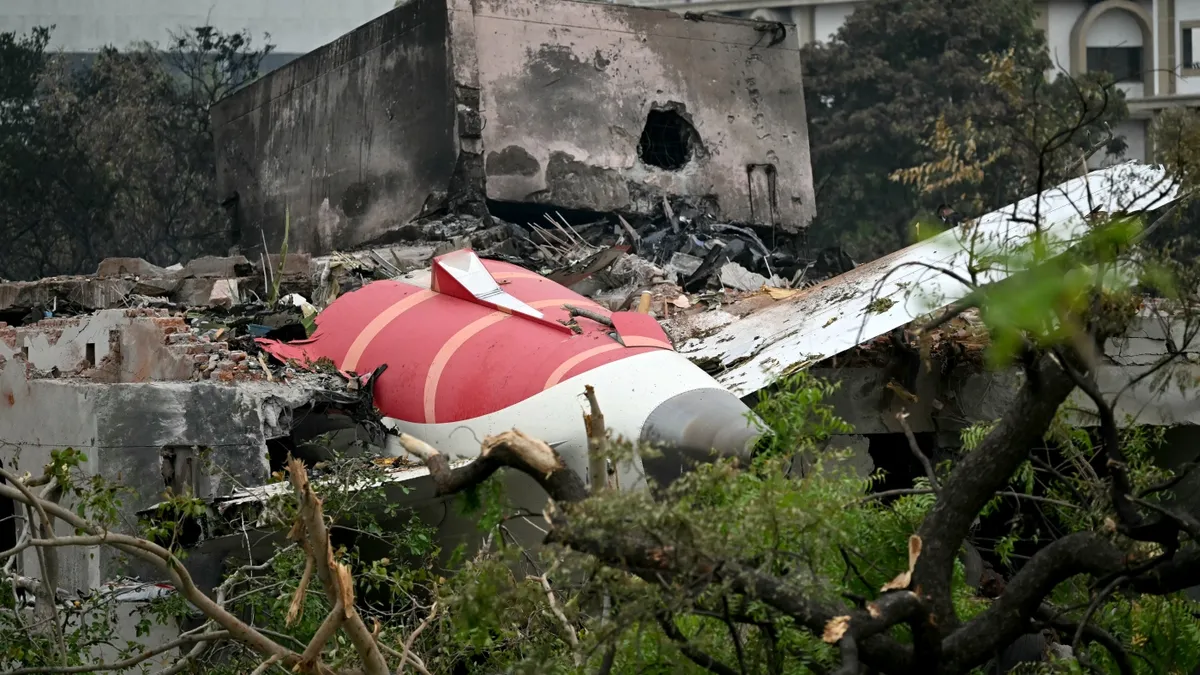
MUMBAI, India — The Aircraft Accident Investigation Bureau of India has launched a comprehensive investigation into the catastrophic Air India crash that occurred on Thursday. This incident is considered one of the country's most devastating aviation disasters in decades. The investigation is being conducted with cooperation from the U.S. National Transportation Safety Board and British investigators, underlining the seriousness of the situation.
Authorities confirmed that the plane's flight data recorder, commonly known as the black box, was recovered from a rooftop at the crash site. This recovery is a pivotal development that will significantly aid the inquiry, as highlighted by the Indian government's Civil Aviation Minister, Ram Mohan Naidu, in a post on social media platform X.
The only survivor from the ill-fated Air India flight 171 was a passenger seated in 11A, who managed to escape the burning wreckage. This flight was bound for London and had 242 passengers and crew on board when it tragically crashed into a medical college shortly after departing from Ahmedabad, a city in northwestern India. The survivor, 40-year-old British citizen Vishwaskumar Ramesh, was hospitalized with non-life-threatening injuries. Eyewitness footage shared by local media showed him bloodied and dazed but alive, clutching his mobile phone.
In an emotional recounting from his hospital bed, Ramesh described how he managed to push aside the emergency exit door, calling his survival a "miracle." Tragically, he lost his brother in the crash, who was seated just a few rows away.
The incident resulted in numerous fatalities, with authorities conducting DNA testing to identify the remains of victims, many of whom were burned beyond recognition. Local reports indicate that only six victims have been returned to their families so far. Among the deceased were five medical students who were dining when the plane struck, as well as bystanders, including a 15-year-old boy delivering lunch to his mother and a grandmother with her 2-year-old granddaughter.
The flight's passenger list revealed heartbreaking stories, including a man visiting his father for the Muslim holiday of Eid and a single mother returning to her nursing job in the UK. The victims also included a director from Lubi Pumps, who was traveling with his wife to visit family in London. "It's a tragedy in how fragile life can be," remarked his colleague Samir Desai.
This tragedy highlights serious concerns regarding aviation safety in India, especially as the country aims to become a global transportation hub. Under the leadership of Prime Minister Narendra Modi, India is rapidly constructing new airports across regional centers. Recently, India emerged as the world's third-largest domestic aviation market, according to state-run News On Air, citing data from the Official Airline Guide.
However, aviation safety expert Amit Singh, a former pilot, expressed concerns about the safety culture within the industry. He stated that there is a significant lack of trust between regulators and operators, which is detrimental to safety. Singh emphasized that major accidents rarely happen without warning signs, citing previous incidents, including a plane crash in 2020 that claimed 21 lives.
Another aviation safety expert, Mohan Ranganathan, criticized India's regulatory framework, noting that many airports do not meet safety standards to prevent large obstacles near takeoff paths. The recent crash, which involved the plane colliding with a six-story building shortly after takeoff, raises serious questions about compliance with safety regulations. Ranganathan accused the aviation watchdog of issuing licenses without proper checks, expressing concern for the densely populated areas surrounding airports.
In light of the crash, India's aviation authority has ordered Air India to implement additional safety checks on its Boeing 787-8 and 787-9 aircraft as a precautionary measure. The Tata Group, which owns Air India, has committed to transparency regarding the findings of the investigation and plans to provide financial support to the victims' families, offering more than $100,000 each.
Despite its recent acquisition by the Tata Group, Air India continues to face significant operational challenges. The airline recently had to cancel and divert flights due to geopolitical tensions and has experienced emergencies, including a bomb threat that forced a flight to make an emergency landing in Thailand. While the Boeing 787 Dreamliner involved in the crash has a good safety record, concerns about regulatory oversight and operational safety remain prevalent.
Boeing, which has been under scrutiny for previous accidents involving its 737 Max planes, has stated that it will cooperate fully with the ongoing investigation led by Indian authorities. The need for stringent safety measures within India’s aviation sector has never been more critical, especially in the wake of this tragic event.